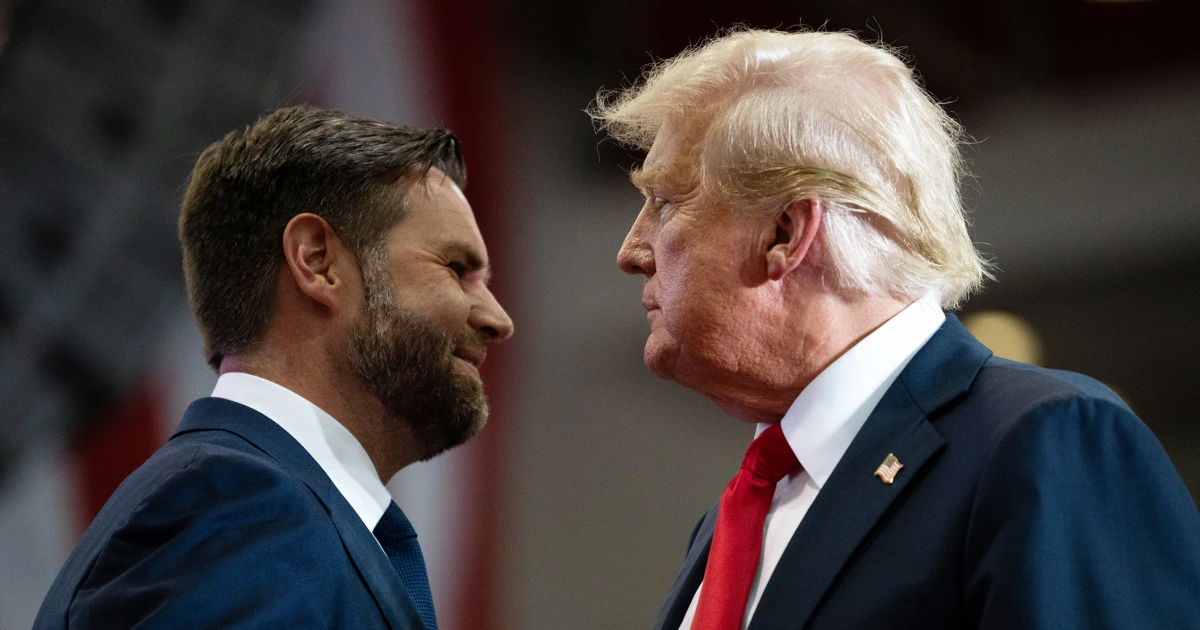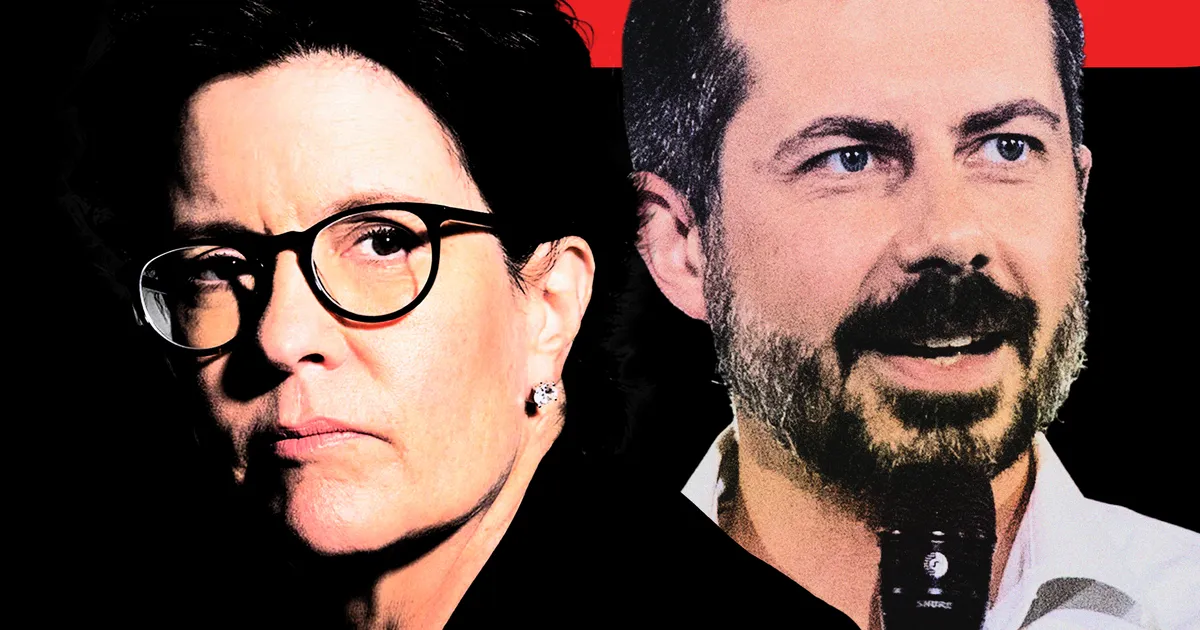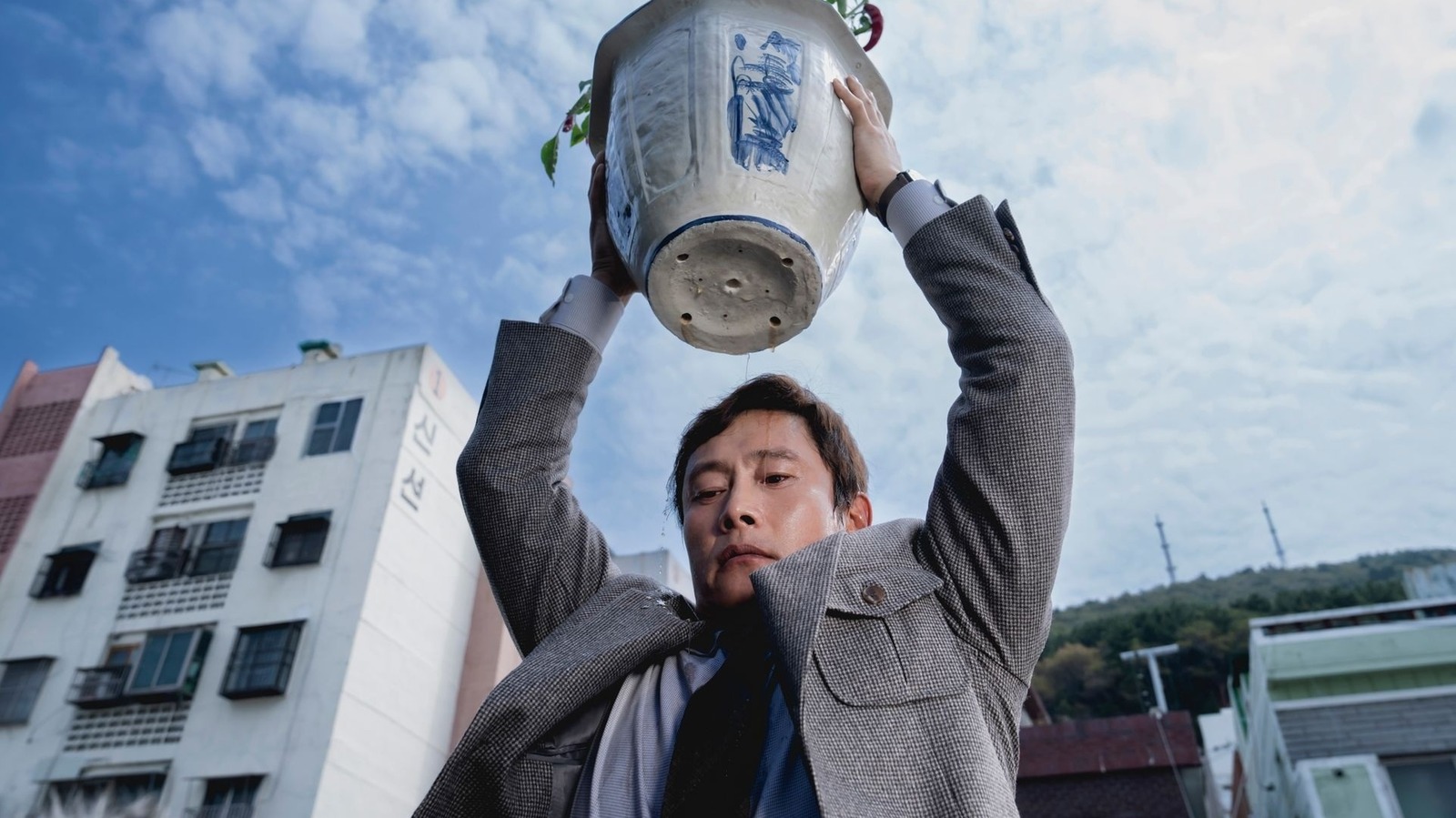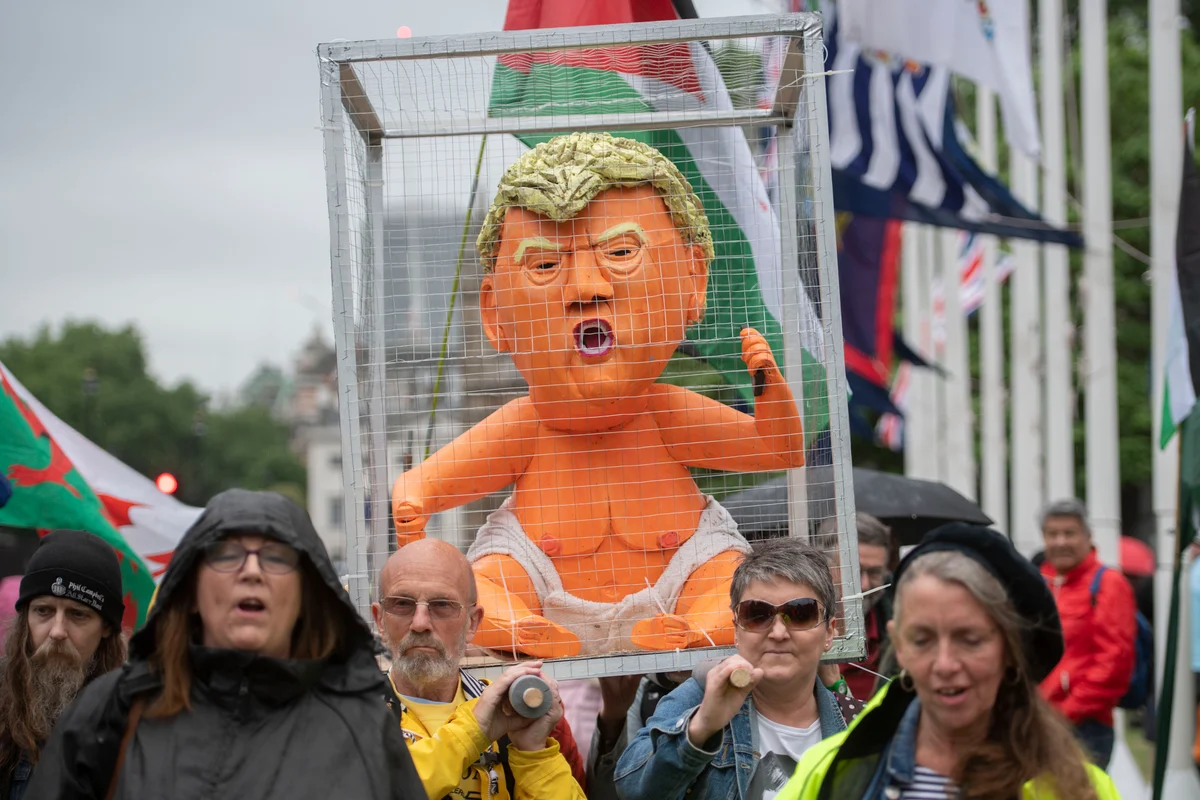By Alex Knapp,Forbes Staff,John Hyatt
Copyright forbes
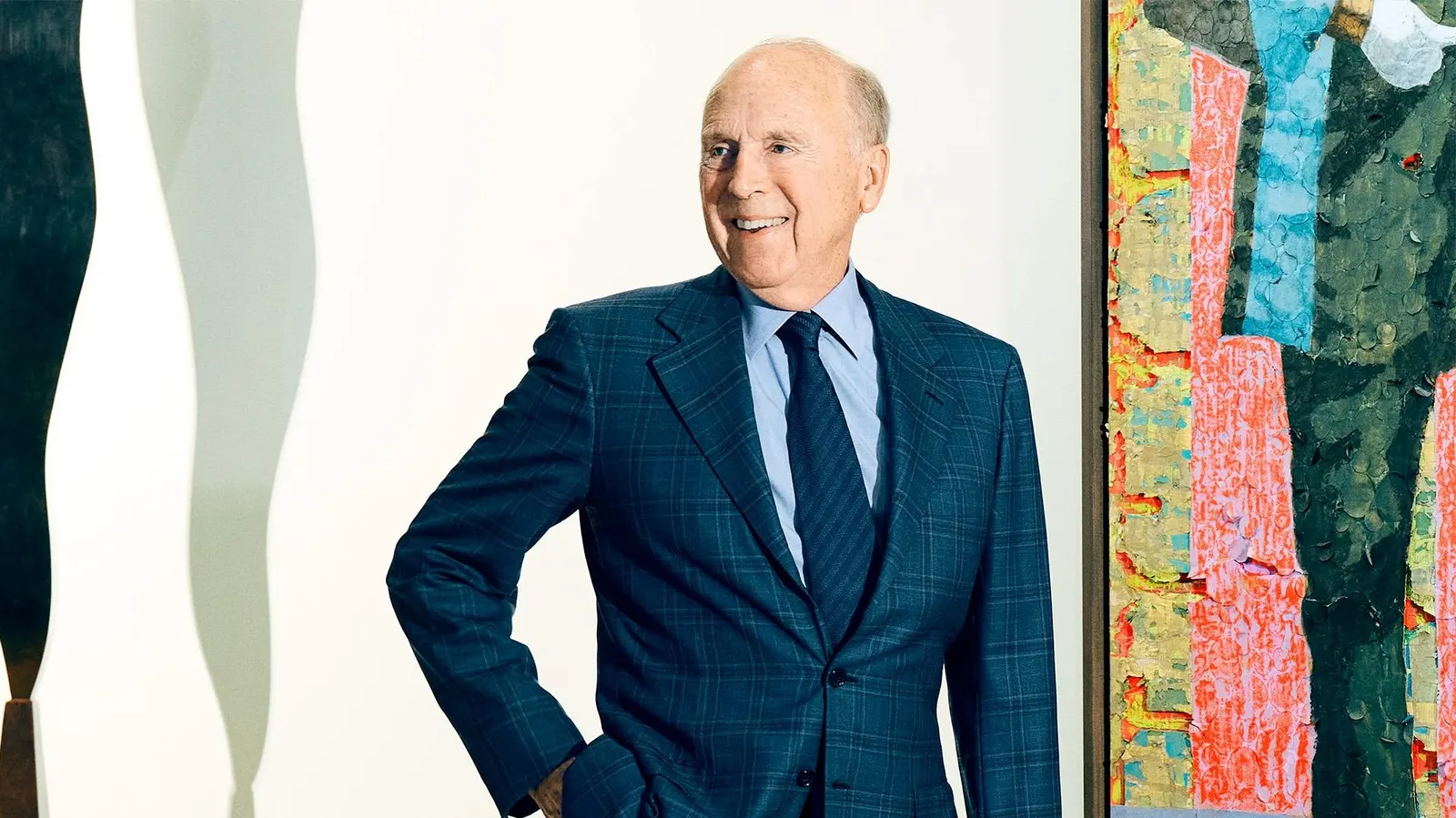
AutoZone founder Pitt Hyde has spent the last 40 years investing in his home city. With crime and poverty deeply entrenched, xAI moving in and a national guard deployment looming, he’s doubling down on his grand civic experiment.
It’s a warm afternoon in August and 82-year-old Joseph “Pitt” Hyde III is climbing over a small rampart, on his way to the edge of the half-finished museum’s roof terrace. “What makes Memphis Memphis is the river,” he says, dressed smartly in a blue collared shirt and navy slacks beneath a hard hat and yellow-and-orange construction vest. Through sunglasses, Hyde is looking out on the banks of the Mississippi River and a pair of historic paddleboat steamships parked at an old dock. Downstairs, construction workers are fitting electrical wiring through holes and nailing huge wooden boards into place. The new Memphis Art Museum, which Hyde bankrolled with a $45 million gift, is scheduled to open next year.
It’s all part of Hyde’s larger project. The businessman and philanthropist, who founded car parts retailer AutoZone in 1979, has spent the last 40 years putting his time, energy and money into his hometown. His foundation, which he runs with his wife Barbara, has given over $300 million including to a smorgasbord of local causes, from helping to establish the National Civil Rights Museum in 1991, to spearheading major education reforms, to helping create beautiful public parks. Memphis-headquartered AutoZone, which Hyde left as CEO in 1996, has also given millions of dollars to local causes backed by its founder.
Cody Pickens for Forbes
“It would be hard for me to imagine Memphis without Pitt and Barbara Hyde and the work that they have done in our community,” says Mayor Paul Young. Formerly director of the city’s housing and community agency, Young, who grew up in Memphis, worked closely with the Hydes as donors helping to finance the construction of new public housing.
Hyde, worth $2 billion, is not the first tycoon to give back to his hometown. The DeVos family has funded hundreds of nonprofits and projects in Grand Rapids, Michigan. Oil tycoon George Kaiser has helped shape Tulsa. What distinguishes him, Hyde says, is his willingness to grit and grind his way through local politics. “Most business guys don’t have the patience for it,” he says. Barbara Hyde, 64, the foundation’s CEO and formerly a fundraiser for the University of North Carolina, oversees day to day operations. “Memphis, overall, is our big bet,” she explains. “We’re focused on how we can make sure that all these pieces we’ve been working on are knit together and taken to the next level, so we can be part of uplifting a struggling mid-tier city.”
But the city’s struggles—poverty, racial inequities, crime—are profound and deeply entrenched. In Shelby County, which includes Memphis and surrounding suburbs, the median income of white households ($90,183) is nearly double that of Black households ($48,205), according to a University of Memphis study published last year. Memphis, which is 63% Black, has a child poverty rate of 36.3%, the highest in the nation among major U.S. cities. “Memphis,” the report notes solemnly, “seems stuck in a cycle that hurts children the most.”
Then there is the crime problem. A recent analysis of FBI data found that Memphis has the highest violent crime rate (2,501 instances of violent crime for every 100,000 people) of all major U.S. cities. In June, ESPN personality Stephen A. Smith claimed that pro basketball players don’t want to play for the Grizzlies because of crime in the city, which sparked local outrage; Mayor Young extended an invite to Smith to visit. (He has not yet. “The invitation still exists” said the Mayor’s office in an email). More pressingly, President Donald Trump signed an order two weeks ago to deploy the National Guard to Memphis as part of an anti-crime task force. “Memphis is deeply troubled,” Trump said on Fox News. “We’re going to fix it.” Tennessee Governor Bill Lee said on Sept. 26 that the national guardsmen will arrive in Memphis next week.
Many locals, including Hyde, push back on Trump’s dystopian depiction. The Memphis Police Department published data earlier this month that show overall crime in the city (not just violent crime) is at a 25-year low. Says Hyde, “Over the past couple of years stakeholders from business, philanthropy and the public sector have come together to create strategies to bring the crime rate down.” Those include targeted police initiatives, federal partnerships to bring in more resources, and intervention and prevention strategies for high-risk youth. “What’s most important right now is to stay united and to keep working on what’s working to bring the crime rate down,” Hyde said in his follow-up emailed statement, after Trump signed the order.
Staying united may be getting tougher, even without debate about the National Guard. That’s thanks to Elon Musk’s xAI, his artificial intelligence startup that built a massive supercomputer last year in southern Memphis out of an abandoned appliance factory, which has deeply divided residents. xAI’s opponents say the company is polluting the city, particularly the nearby Black neighborhoods. “What’s at stake here is whether or not we deserve clean air,” says State Representative Justin J. Pearson, whose district spans northern Memphis, the historic downtown, and the area around xAI’s Colossus (as Musk’s named it) in southern Memphis. The Southern Environmental Law Center, writing on behalf of the NAACP, sent a letter to xAI in July notifying of their intent to sue over the company’s use of unpermitted gas turbines when the plant began operating in violation of the Clean Air Act. The turbines have since been removed, and so far nothing’s been filed. xAI is now building a second mega-data center 12 miles away, across state lines in Southaven, Mississippi. It aims to spend upwards of $12 billion on its supercomputer investment.
Advocates for xAI, including the Memphis Chamber of Commerce (which has aggressively promoted it) and Mayor Paul Young, say Musk’s company brings badly needed tax revenues, $25 million in its first year between city and county, and jobs (up to 500, says the Chamber of Commerce). It’s apparently already the second largest corporate taxpayer behind Fedex. “I think that the project itself often gets overshadowed by the person behind it,” says Young, who cites the fact that 25% of city tax revenue collected from xAI ($3.2 million) will be reinvested in neighboring communities.
Hyde, ever the businessman, supports xAI and is even an investor. His family office acquired a stake (of undisclosed size) in xAI through a special purpose vehicle earlier this year. He and Barbara know Elon Musk’s brother Kimbal, who formerly ran a restaurant in the city. “We welcome anybody that wants to invest money in the city. So far, it’s been a plus,” says Hyde, citing xAI’s willingness to forgo tax waivers and Musk’s commitment to being “a good community person.” Worth a massive $200 billion based on its latest round of financing raised in September, xAI has pledged to provide repair services to four local schools, and it cleaned up 100 tons of garbage and debris in a five-mile radius of its facility, the Commercial Appeal reported. Musk, the world’s richest man worth $490 billion, personally gave just $350,000 to the Boys and Girls Club of Greater Memphis through his foundation. Above all, Hyde is hoping xAI inspires other tech firms to come to Memphis.
Agreeing to Disagree on Musk’s Memphis Moves
Some Memphians are welcoming xAI to town. Others want to show Musk the door.
“Memphis could use some investment and excitement and energy around business; on the other hand, there’s a lot we don’t know about the impact on the environment.”
Jennifer Wilczynski, Resident of Downtown
“Anything that’s bringing more jobs to Memphis is good. A lot of people don’t like Elon now, but if he was not with Trump, they’d be all on it.”
Jimmy Crews, Resident of Midtown
“XAI is just another iteration of environmental racism. My neighbors—they’re not just my constituents—are suffering due to worsening air quality.”
State Rep. Justin Pearson, Resident of South Memphis
“He’s intruding on Memphis with this supercomputer. I really wish he would not only relocate it, but not do it at all.”
Emma Hill, Law Student and Downtown Resident
“Obviously, AI is the way of the future. Having a facility like that in this region, a lot of benefits can come from it.”
D’Angelo Connell, Photographer, Midtown Resident
“Don’t get me wrong, I think it’s a great thing for the city. But they didn’t get any environmental permits to begin with, they just put it in. It’s kind of a disaster.”
IT Worker At Local Manufacturer (Declined to Give Name)
AutoZone has been headquartered in the city since its 1979 founding. In 1995, it moved to its current headquarters, an eight-story glass building in the downtown atop the river bluffs where 1,700 AutoZoners work today, from its original headquarters on the wealthier and whiter east side. “There hadn’t been a new building built down here in 20 years,” recalls Hyde. “I was hoping it would help invigorate downtown Memphis, which it did.”
Hyde’s own heritage traces the history of Memphis. His grandfather, Joseph Hyde Sr., born in Chattanooga, Tennessee in 1884, came to the city as a young man looking for opportunities before founding the grocery wholesaler Malone & Hyde with a cousin in 1907. “Back then they used to ship goods on paddlewheels,” says Hyde. His father Joseph Hyde Jr. took charge in 1948 and turned the company into a one-stop-shop for mom and pop grocers; the company went public on the New York Stock Exchange in 1961. Memphis was growing, too, its population jumping from 300,000 to 540,000 between 1940 and 1965 as corporations like Firestone Tire and Rubber Company and Kimberly-Clark (the maker of Kleenex tissues) opened up factories that supplied thousands of good paying jobs.
But the growth was unequal, split along racial lines. Black workers were relegated to the lowest-paying and most physically demanding jobs, including roles in sanitation, manual labor, and domestic service. Racially restrictive covenants confined Black families to shoddy rental properties in overcrowded neighborhoods. When Martin Luther King Jr. visited the city to support the Black sanitation workers who were on strike, he was assassinated by gunshot speaking from the balcony of the Lorraine Motel.
“It was a tragedy in so many respects,” recalls Hyde, who was 26 at the time “Before, Memphis was by far the biggest city in the state and the fastest growing. It just killed us economically for a number of years. It was hard to recruit industry here because it created that image of racial strife.” King’s slaying, followed by desegregation efforts and factories shuttering spurred White Flight and eastward suburban sprawl. Beale Street, whose bars and venues gave rise to blues stars like B.B. King, Muddy Waters and none other than Elvis, became a ghost town.
In the 1980s, while building AutoZone (and selling off the family business to a competitor), Hyde became engrossed in a roiling civic debate: What to do with the derelict, city-owned Lorraine Motel in the city’s South Main neighborhood? Many wanted to demolish it, as if to erase that painful chapter. Hyde and others saw a different possibility: Refurbish the site, memorialize King, spread his message through education. He rallied civic support for making it into the National Civil Rights Museum, which opened its doors in 1991. “Pitt was relentless in his advocacy for this place,” says Russell Wigginton, president of the museum. “His passion for it made others join and participate.”
Seeing that project’s positive economic impact in South Main, Hyde started thinking up other revitalization projects, like moving AutoZone’s headquarters downtown in ‘95. He led the effort to bring the Grizzlies NBA franchise to Memphis in 2001, serving as de facto spokesman for the local ownership group. His biggest and most ambitious project: overhaul schooling in Memphis from the top down. “We started to think about how we change the whole education system, the entire ecosystem for kids,” recalls Hyde, who spent years personally lobbying the Tennessee General Assembly to enact the state’s first charter school law, which passed in 2002, and advancing major statewide reforms that helped Memphis secure a $90 million education grant from the Gates Foundation and Tennessee $500 million in federal grants under the Obama administration. The Hyde foundation has spent $126 million towards educational causes and nonprofits.
Then came Shelby Farms Park, a county-owned natural reserve (and site of a former penal farm) 12 miles east of downtown. When developers were pressuring the county to sell off land, the Hydes launched a plan to transfer park management to a nonprofit conservancy. After years of building grassroots support, commissioners approved the plan in 2007, and Hyde seeded the conservancy with $20 million. The Hydes followed a similar playbook for the riverfront Tom Lee Park: local organizing, building political consensus, calling upon deep-pocketed donors, and of course giving their own money ($5 million).
“What people can learn from the Hydes is that money alone won’t get the job done,” says Carol Colette, former CEO of the nonprofit overseeing Tom Lee Park. “It takes relationships and networks and friendships, really digging in and understanding.”
Tom Lee Park, which opened in 2023, is named after a Black Memphis man who in 1925, while rowing a small wooden skiff in the Mississippi River, saved 32 passengers from a sinking steamboat.
Memphis River Parks Partnership
Given the bevy of challenges Memphis still faces, Hyde is not pollyannish about his own impact, or his city’s future. Still, he has plenty of hope—and plenty of money yet to give, including $250 million in the foundation and another $2 billion managed by the family office. “We do see the Hyde Foundation continuing to exist beyond our lifetime,” says Barbara. Succession talks (the couple have three adult-aged children) are ongoing.
“Progress is not a linear path,” Hyde reflects later that day, over dinner at a seafood restaurant in Shelby Farms overlooking Hyde Lake, one of the few public spaces named after him. “But you’ve got to keep working to do what you can to get the enthusiasm of the people. You’ve got to have that commitment to do things that inspire people to say, “Hey, we can do anything.’”
More from Forbes
ForbesRFK Jr. Is Targeting Vaccines And Tylenol. Are Prozac And Ozempic Next?By Alex KnappForbesHow Devotion To DIYers And Financial Wizardry Made AutoZone One Of America’s Best Performing StocksBy John HyattForbesFrom Taylor Swift To Nascar: Under The Hood Of Scott Borchetta’s Big MachineBy Matt CraigForbesThe Web Of Billionaire Pals, Partners And Trump Supporters Taking Control Of TikTok U.S.By Chase Peterson-Withorn
Got a tip? Share confidential information with Forbes.
Editorial StandardsReprints & Permissions
